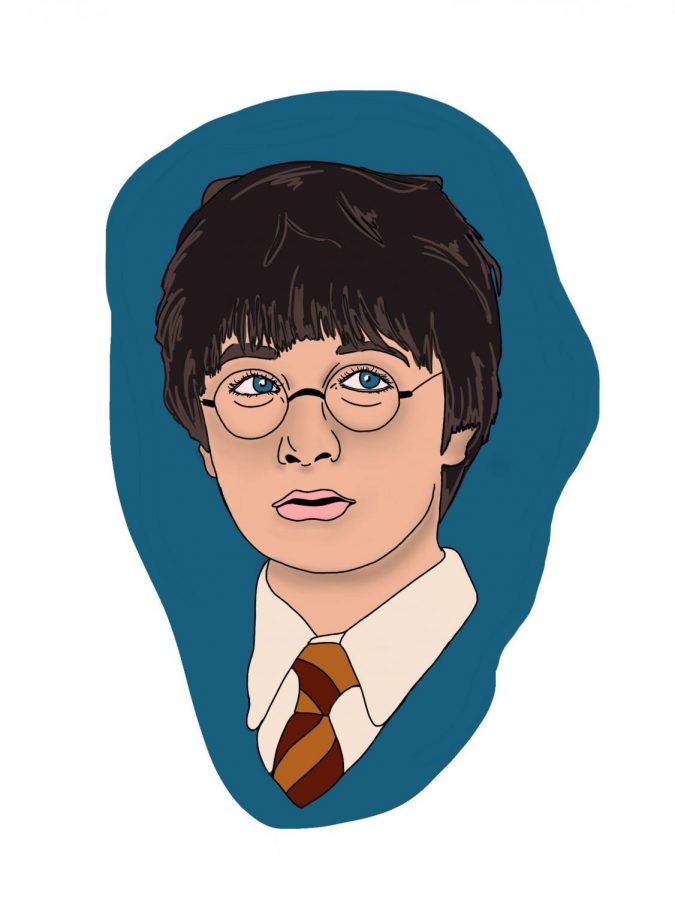J.K. Rowling: A Popular Author That Perpetuates Racial Stereotypes And Anti-Trans Rhetoric
December 3, 2020
Author of the beloved Harry Potter series, J.K. Rowling has recently shown her true colors regarding trans rights through Twitter.
On June 6, Rowling tweeted “If sex isn’t real, there’s no same-sex attraction. If sex isn’t real, the lived reality of women globally is erased.”
This statement sparked both an outcry of support and a vast array of people defending the trans community.
Twitter user @maddyeisenberg tweeted, “literally NO ONE said the concept of sex or womxn is erased. The only thing erased here is YOU erasing the legitimacy of trans folks. Please reconsider where you stand here, for trans folks and for so many who used to idolize you.”
Not only did Rowling’s statement spark criticism on Twitter, but it also caused a response within the greater Harry Potter fandom. Many of her fans now revoke their support for Rowling and her works–they have vowed to boycott official merchandise and to consume only fan-made content.
As fans showed their disgust for Rowling’s statements, they began to take a closer look at the content of Harry Potter, too. Fans soon realized that most of her minority characters were based on stereotypes.
One of the only Asian characters was Cho Chang, whose name comes from two last names from different parts of Asia. The character was sorted into Ravenclaw, otherwise known as the “smart house.” Two of the three Black characters have no fathers, and the other has the last name Shacklebolt. The goblins, which are the large-nosed, greedy bankers of the wizarding world, are viewed as anti-Semitic due to their similarity to harmful caricatures of Jewish people. An Irish character is an alcoholic who tries to turn every beverage into alcohol and blows things up.
The so-called diversity in Rowling’s novels, which she takes pride in, is only skin deep. Her writing is riddled with harmful stereotypes and negative portrayals of minorities.
In her initial Twitter statement she defended her transphobic comments under the premise of protecting same-sex attraction, however she perpetuates harmful and hurtful stereotypes about LGBTQ+ people, specifically gay men, in her books.
In Harry Potter, lycanthropy, or being a werewolf is likened to the AIDS epidemic and, by extension, some claim that the werewolves are an allegory for gay men. In the books, Rowling depicts the werewolves as bloodthirsty predators whose primary goal is to infect as many children as possible. It doesn’t take very long to realize how sinisterly subtle her microaggression-filled writing is.
An important plot point in the book and film series is fighting oppression, which is highly ironic as the author and god of this universe is perpetuating stereotypes that tear down the oppressed. Through her writing, JK Rowling taught her own readers to stand up to people like her and to defend those whom she attacks.
In more recent months, her twisted views on trans people appear in her new novel, titled Troubled Blood, which was released this September. The story follows a murder investigation where a man dresses up like a woman in order to prey upon the women of London. The concept of a predatory man using the guise of a woman in order to harm women is a concept that often villifies the trans community.
It is no surprise that Rowling has also used her Twitter account to further push her anti-trans agenda. She has supported an Etsy shop which sells shirts, pins, and mugs plastered with transphobic rhetoric disguised as feminism. Many have labeled Rowling a “TERF,” an acronym that stands for “Trans Exclusionary Radical Feminist;” this seems to be a fitting label because, while she may not have hatred for men, she undeniably is disgusted by trans people.
The fall of Rowling’s public image won’t change much in the grand scheme of things, but one thing that will is educating oneself. Being open-minded and informed is the way young people can impact universal culture and understanding of each other.






























